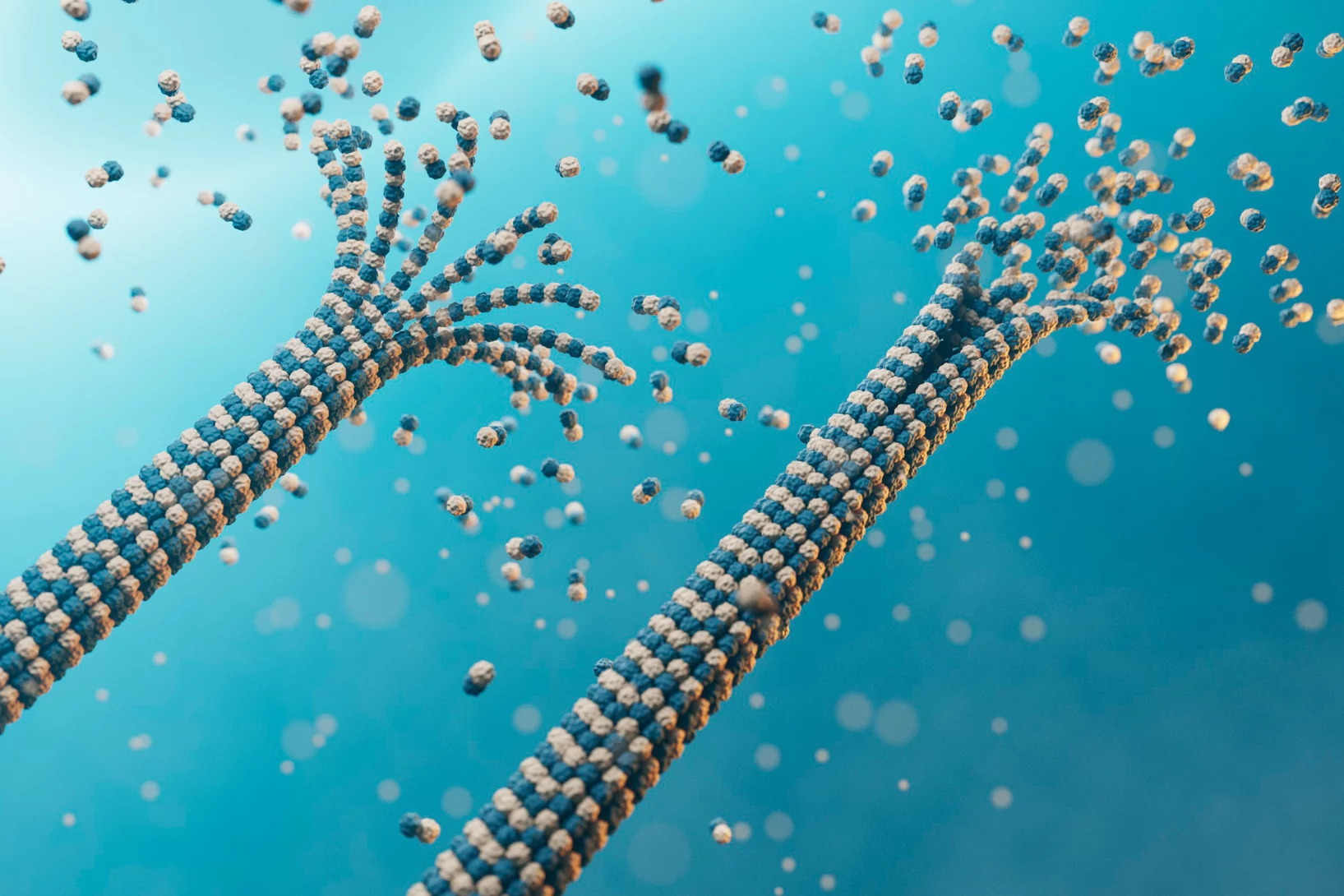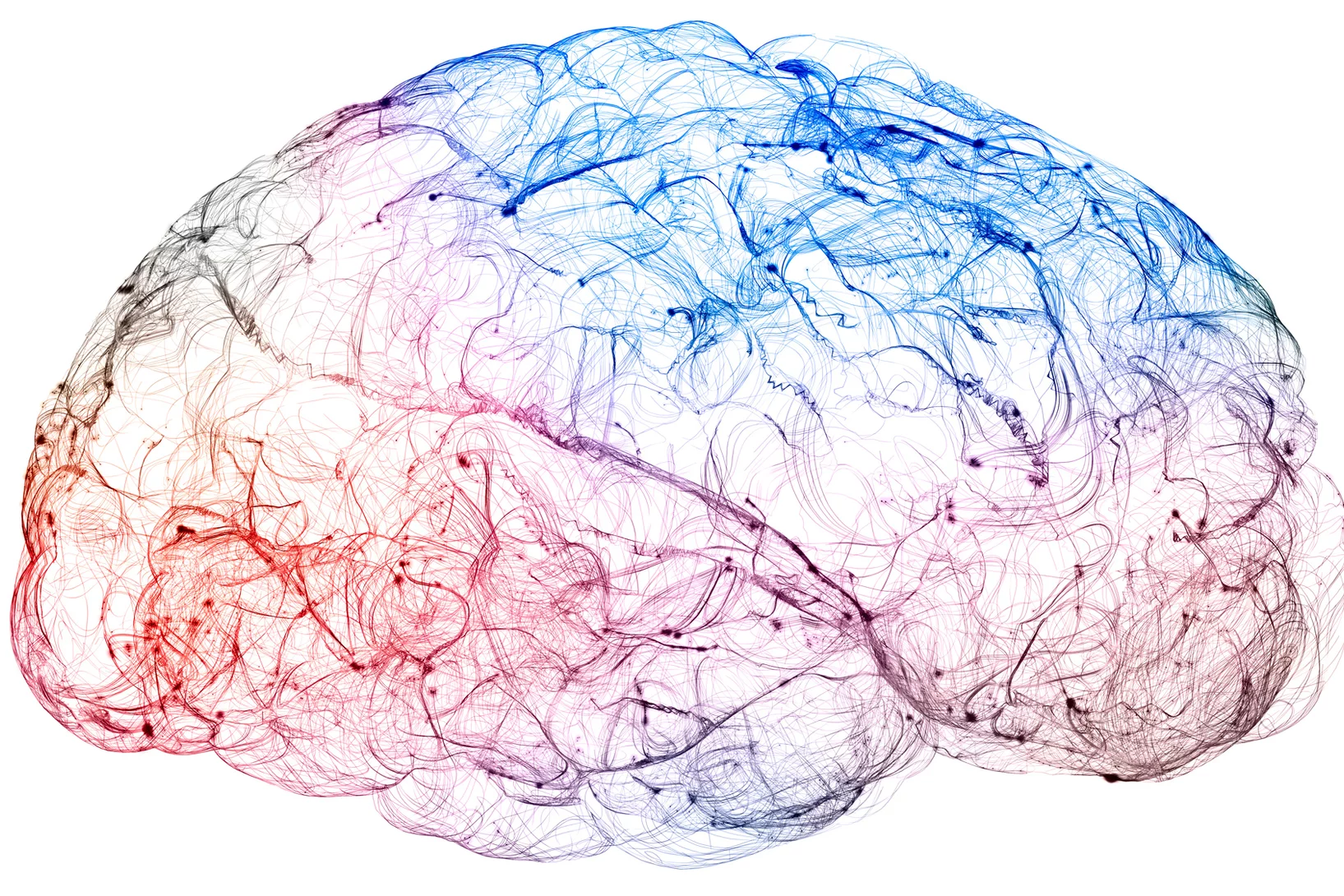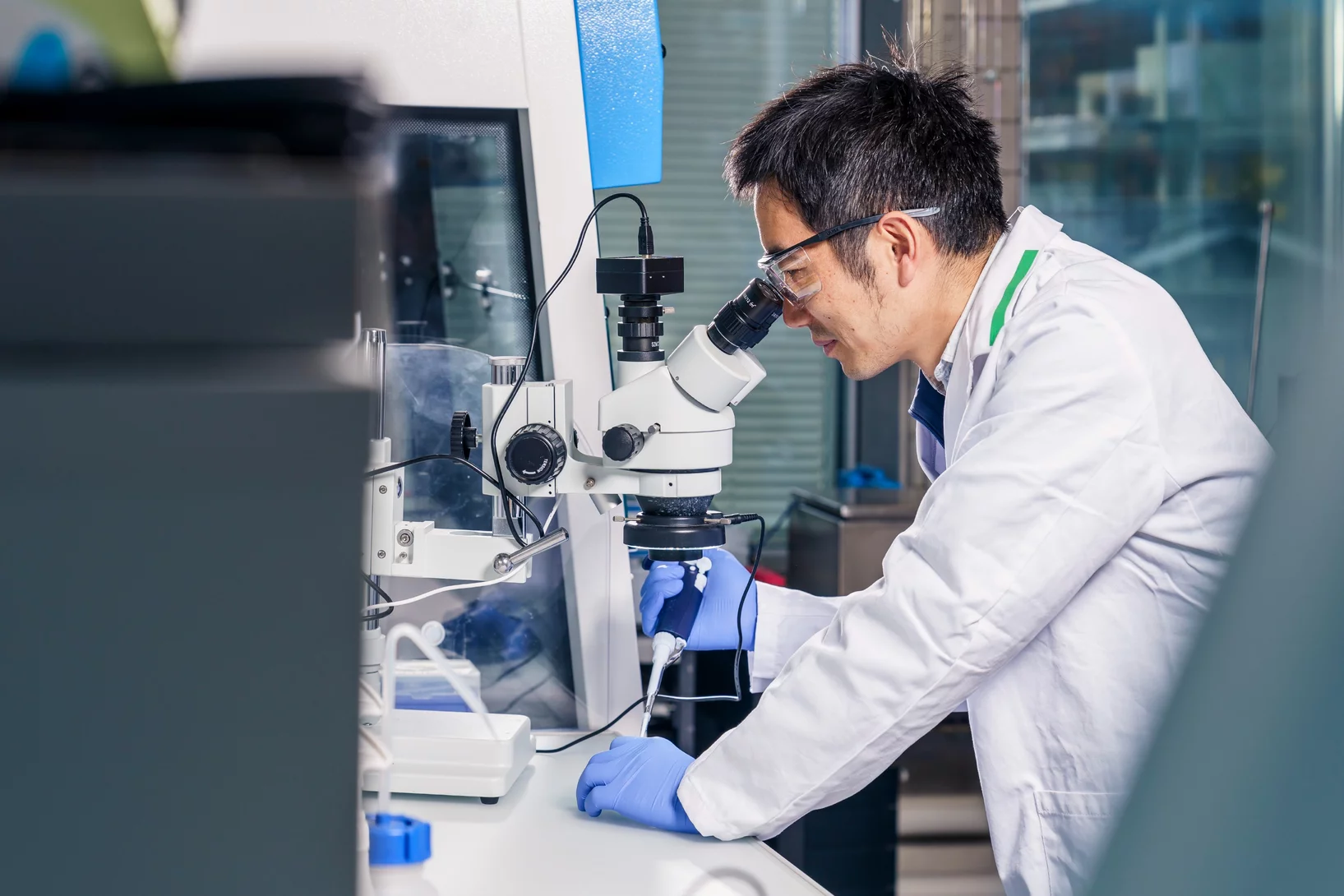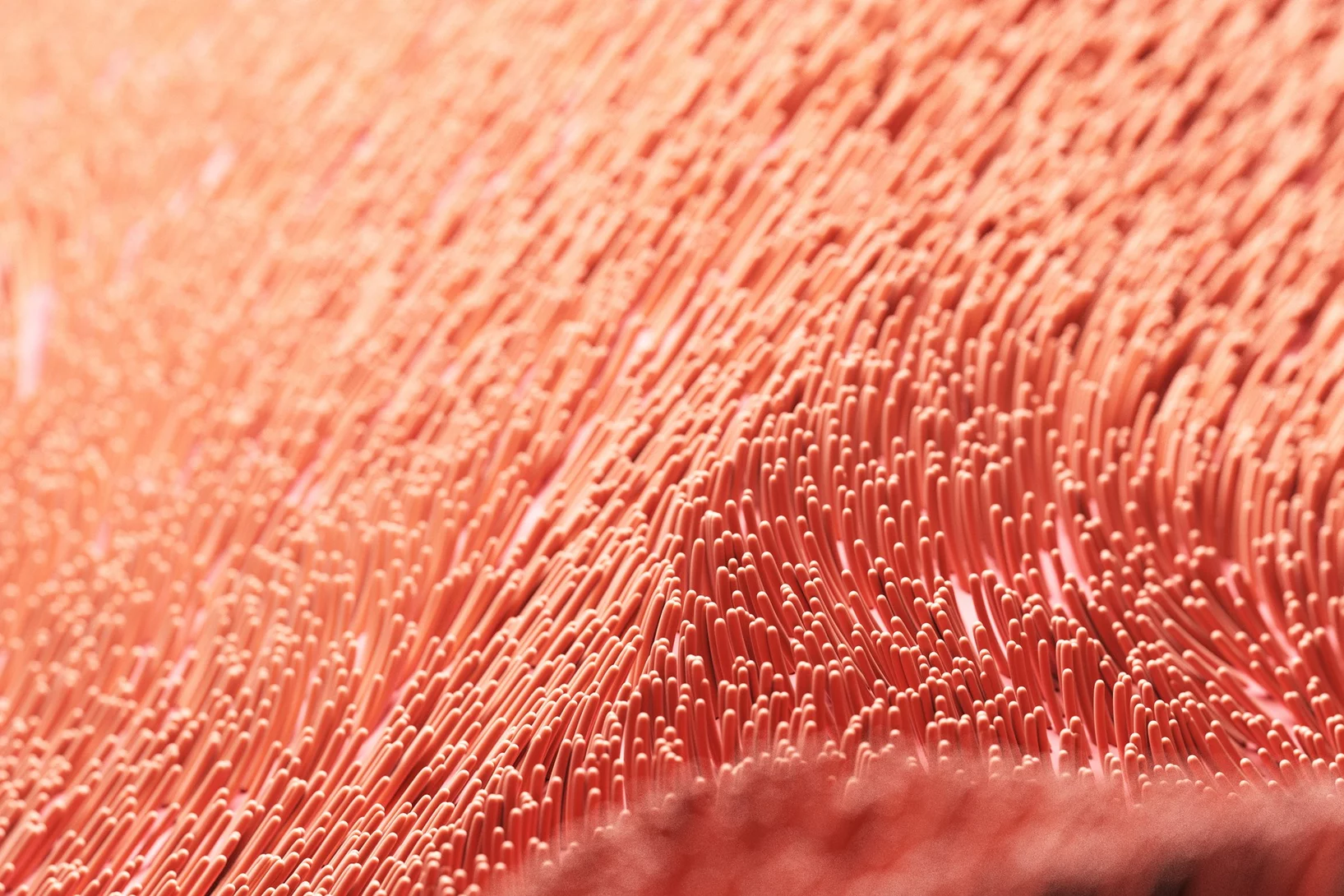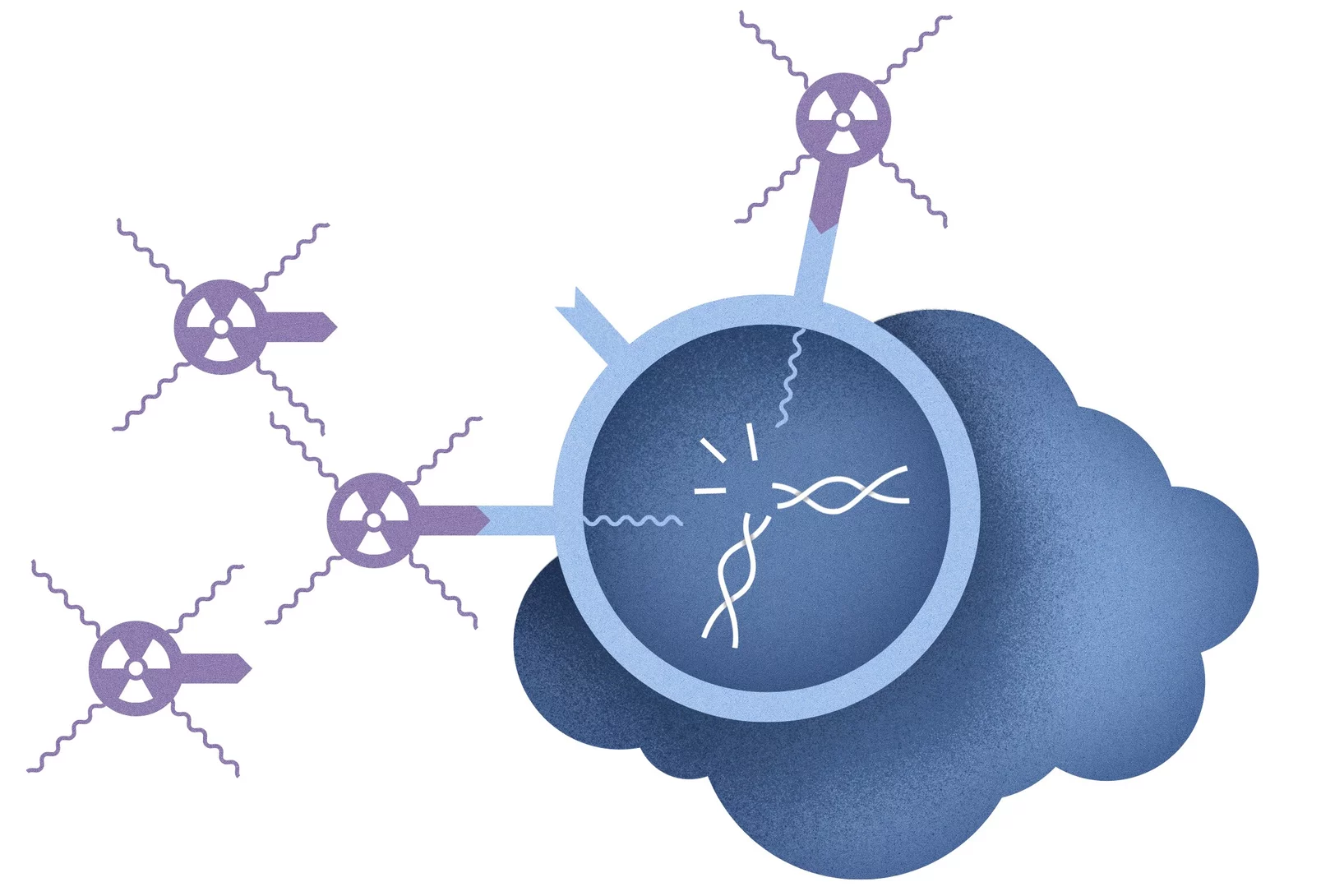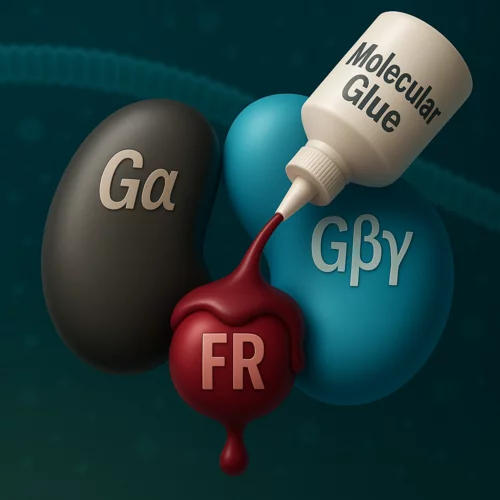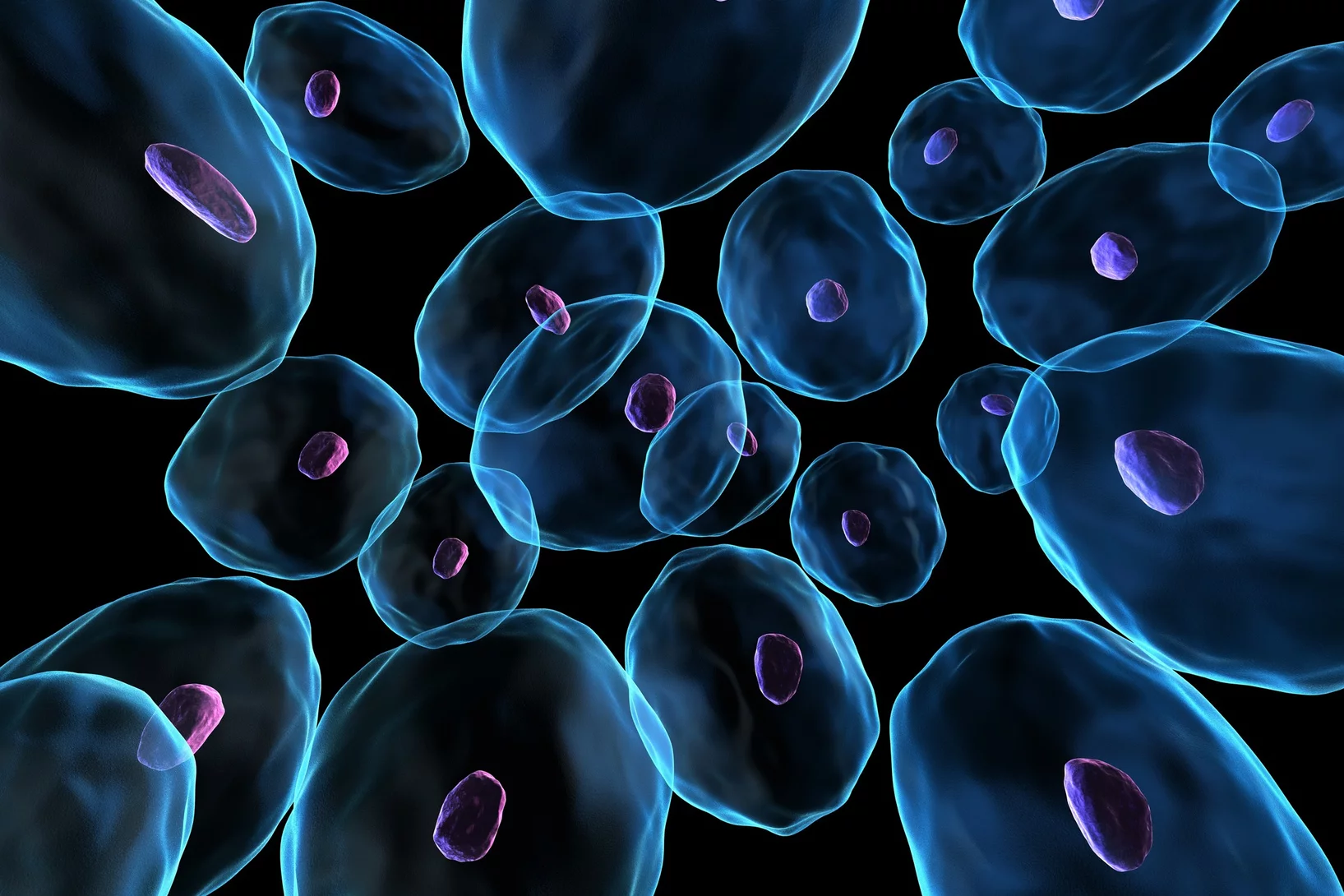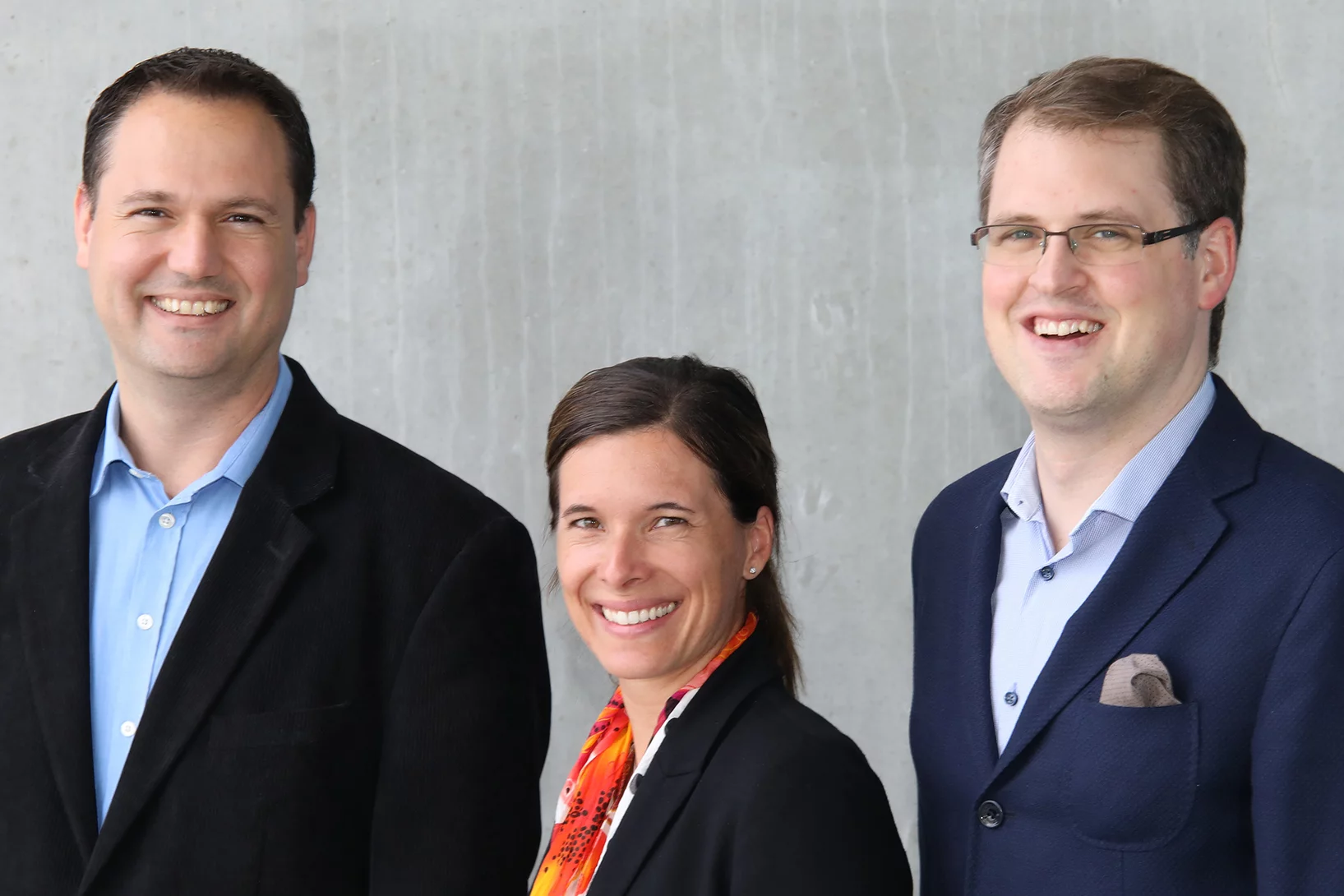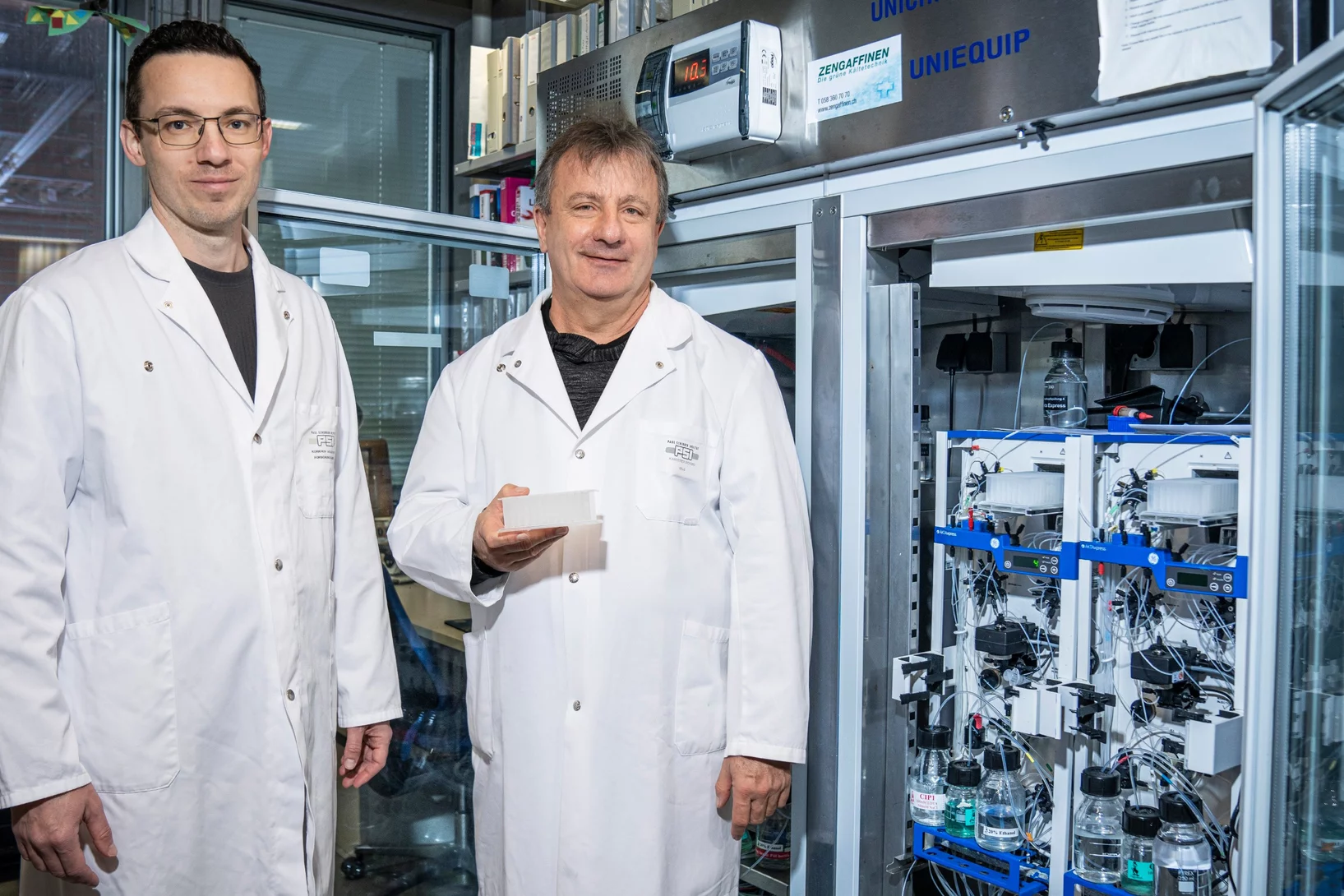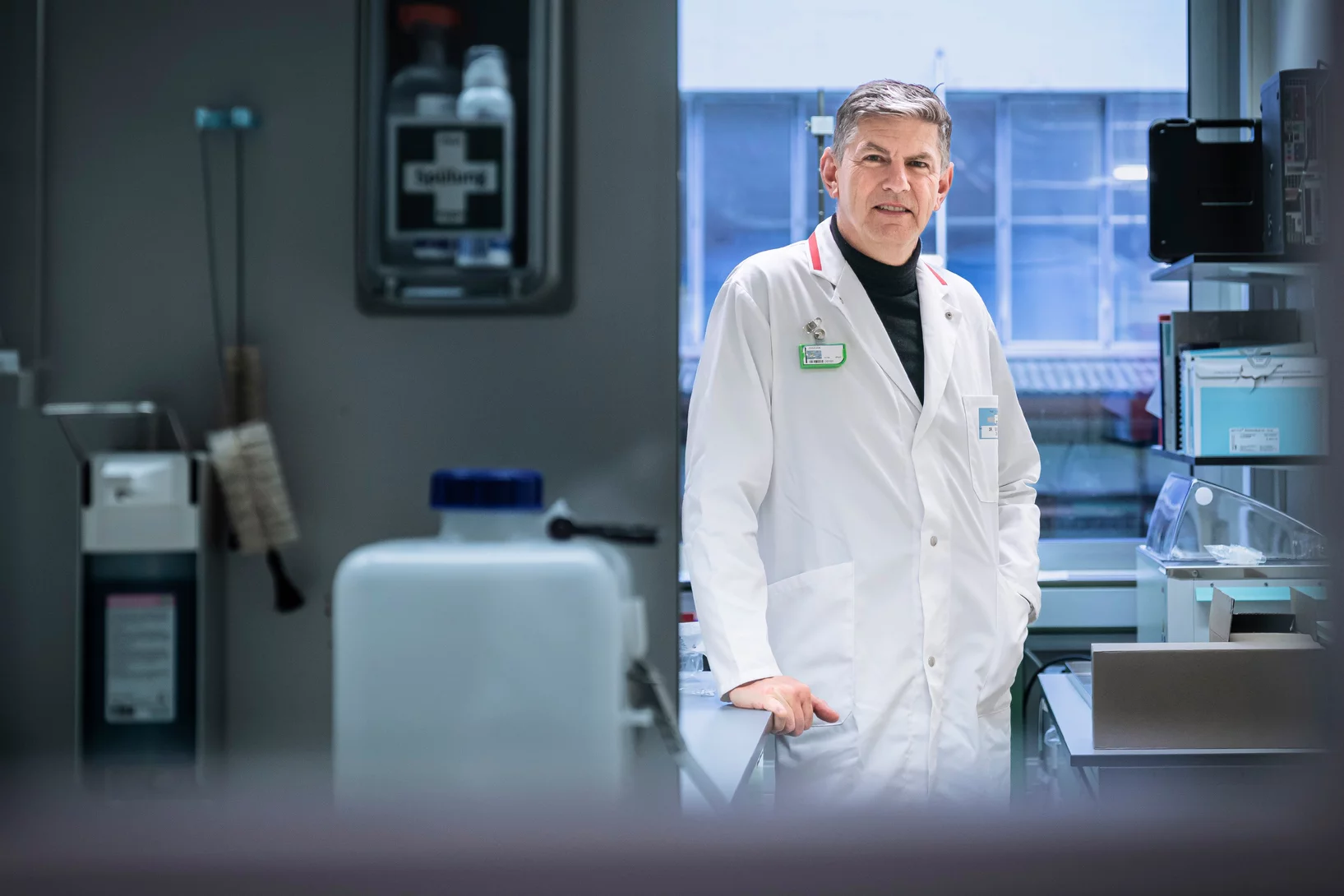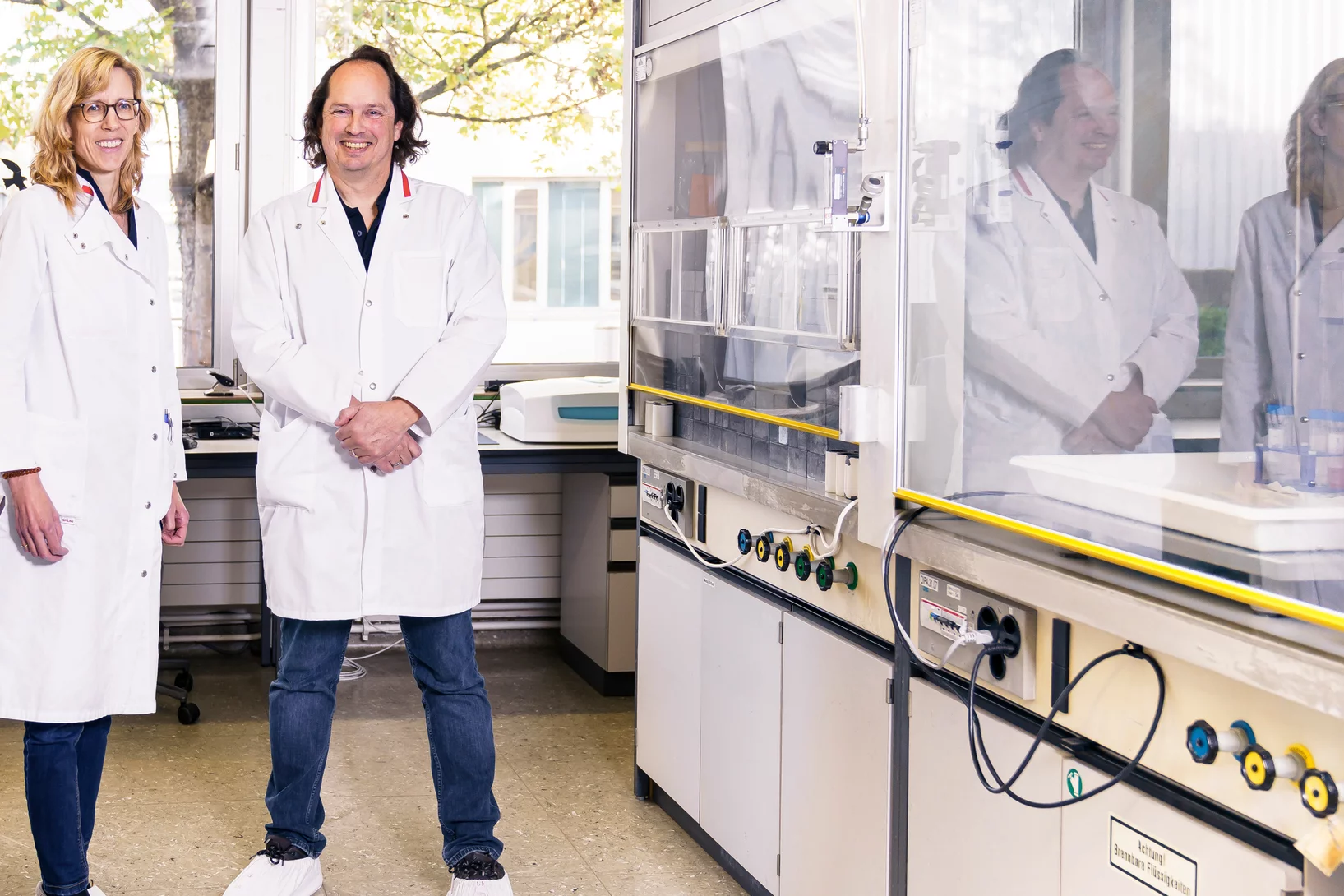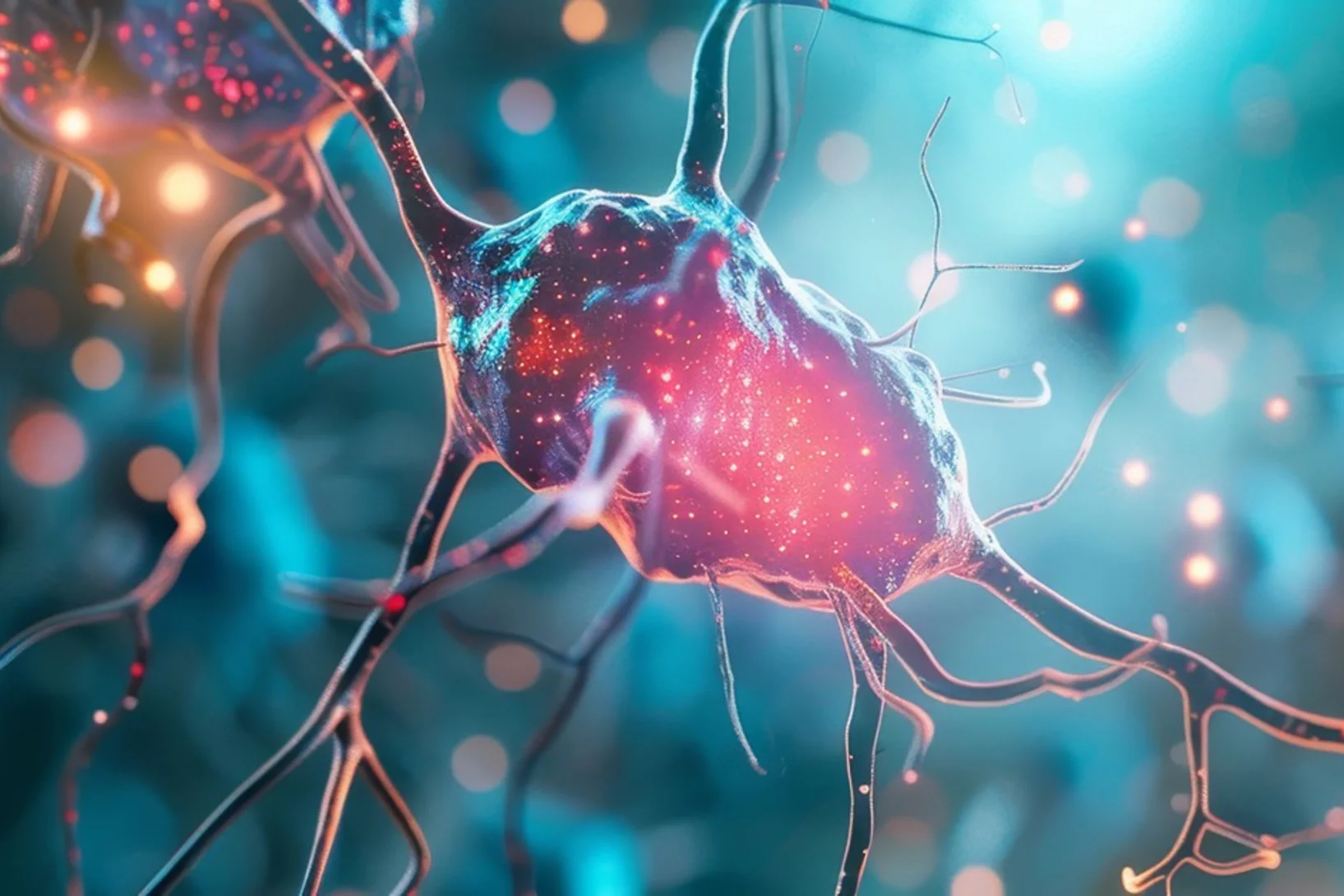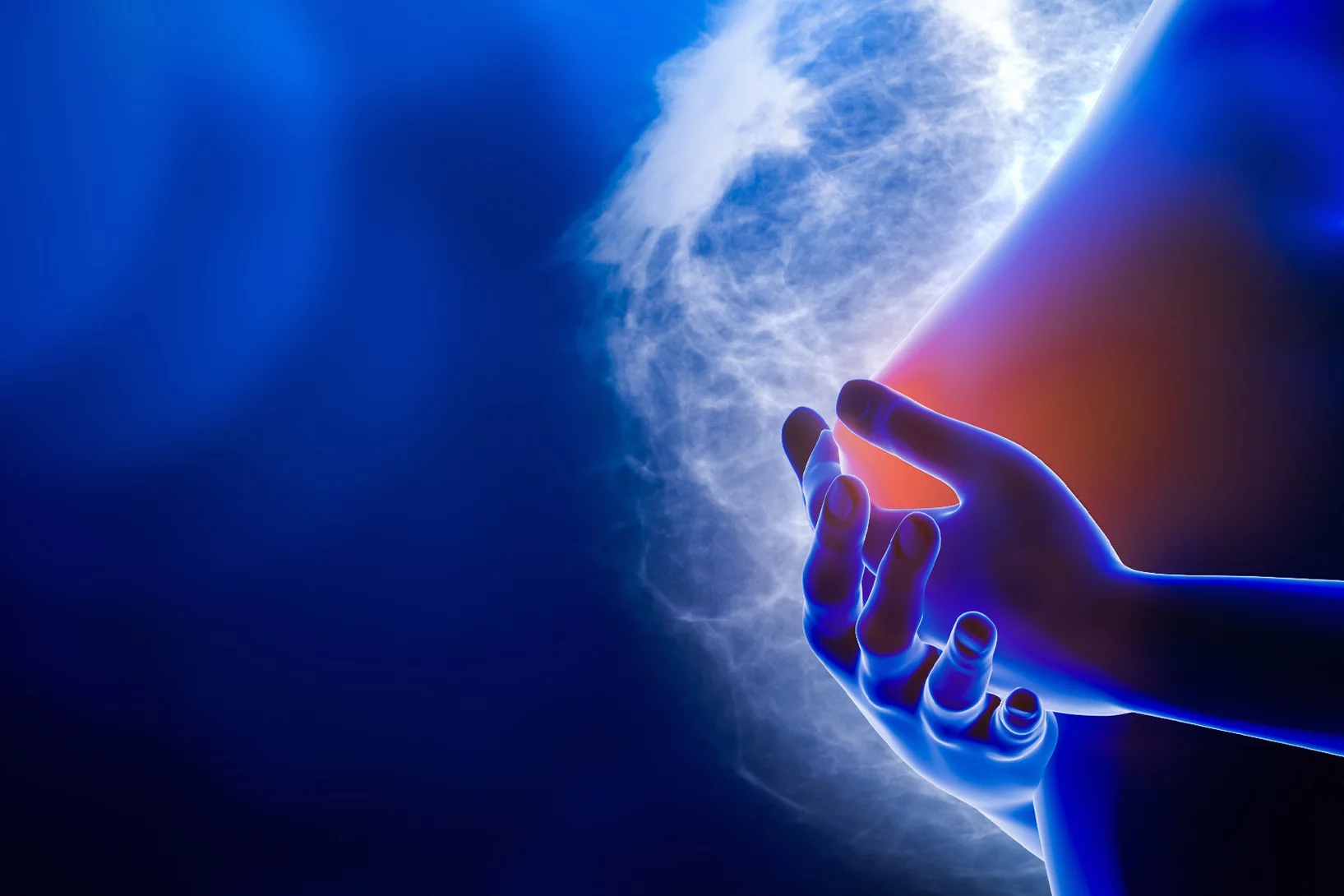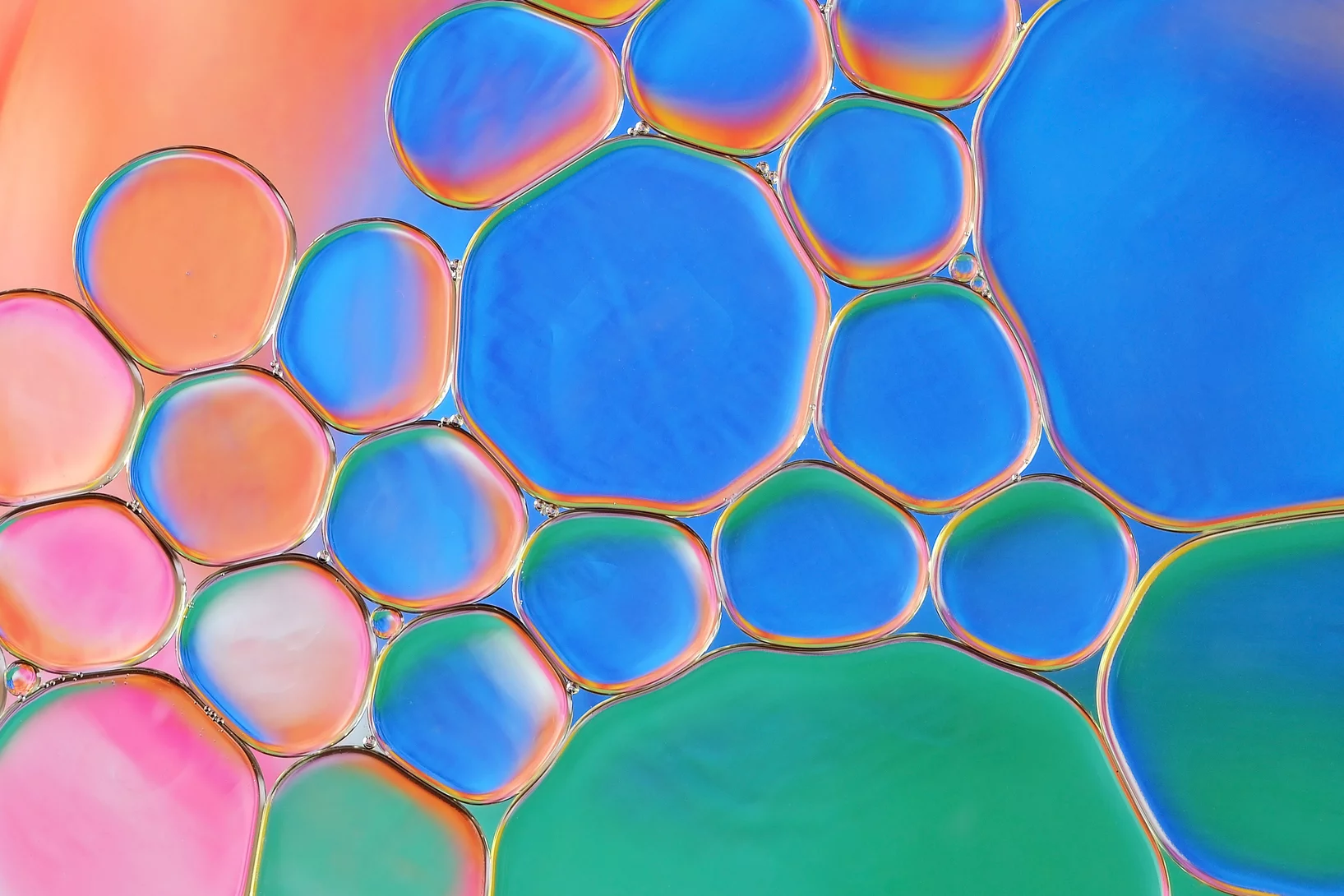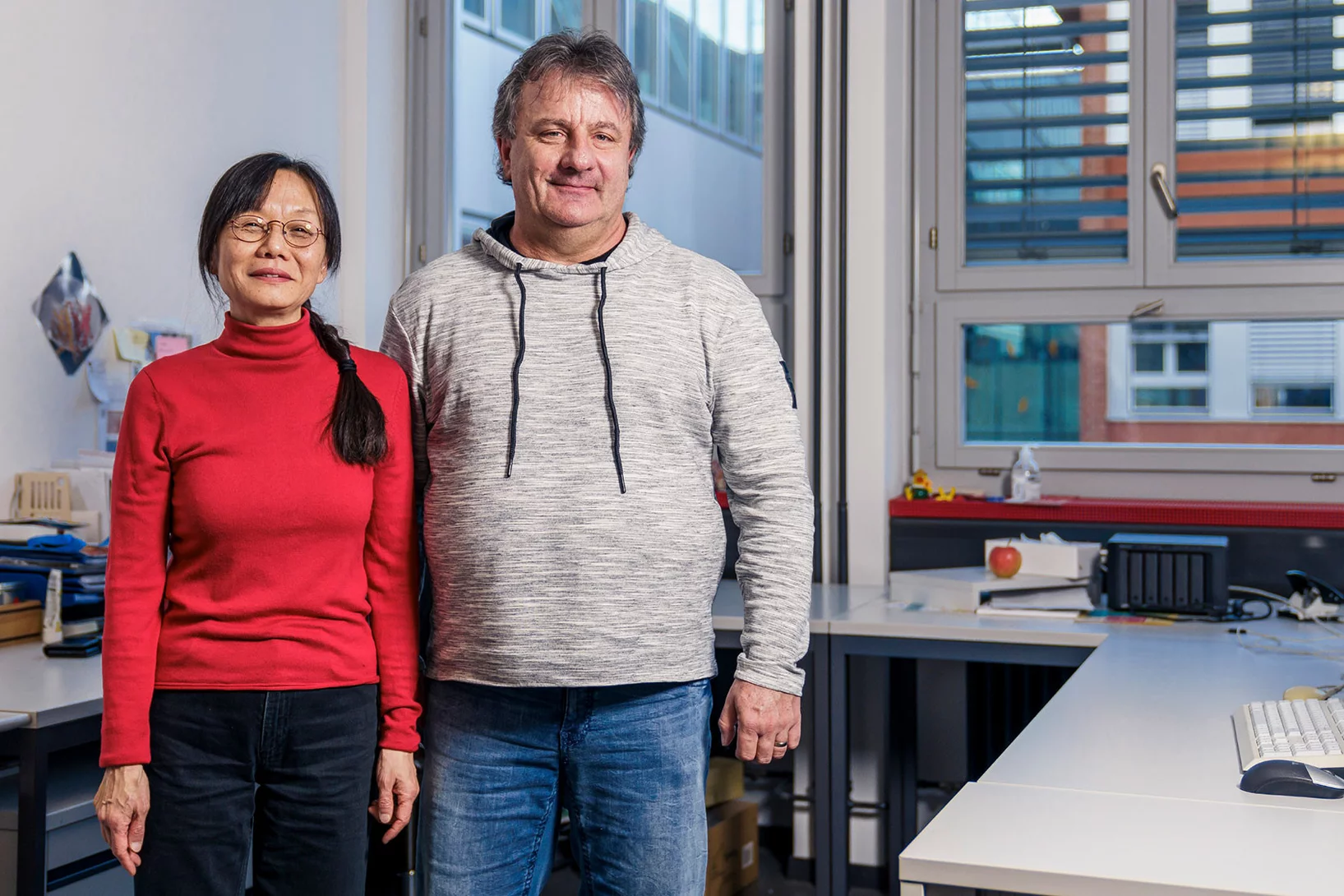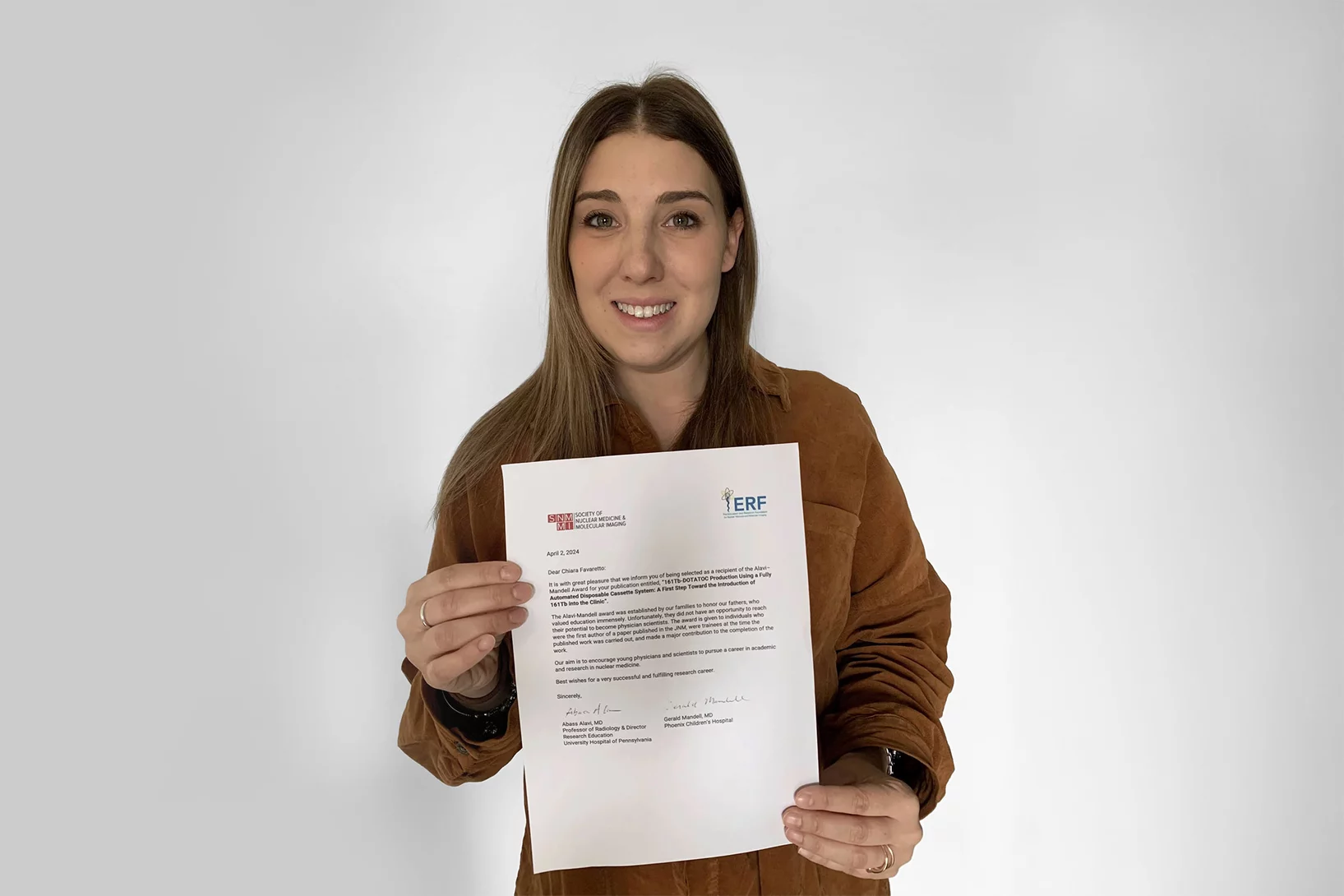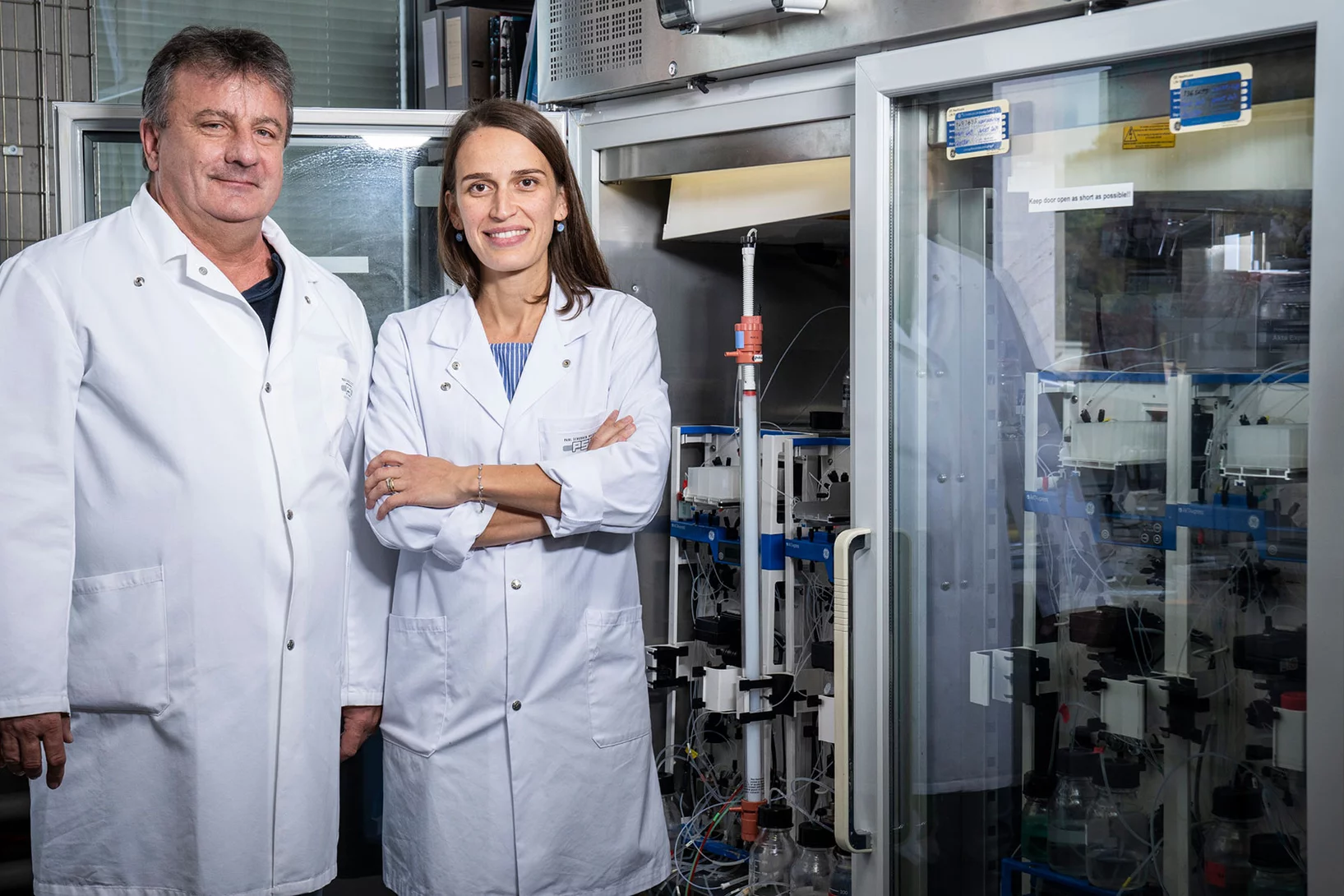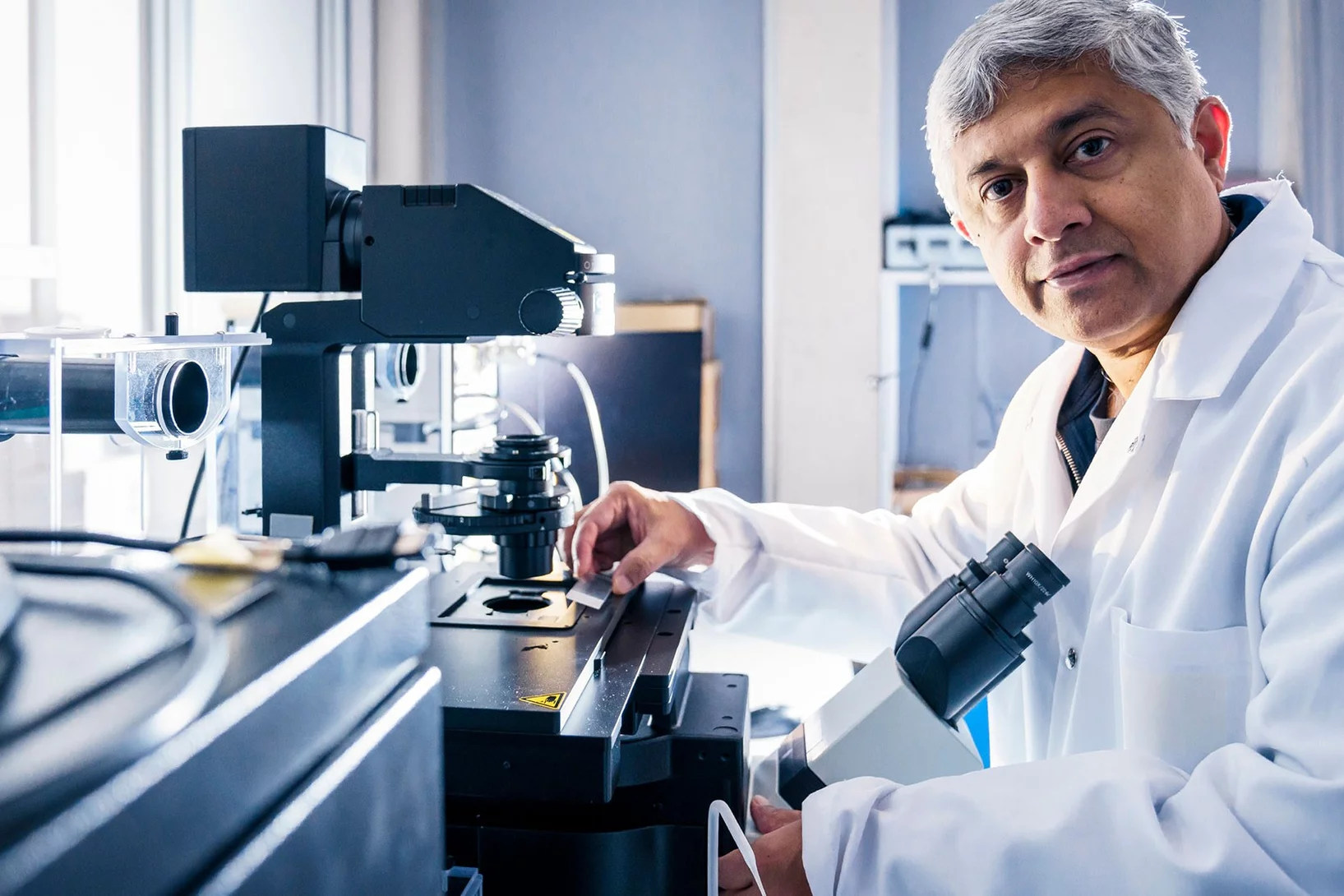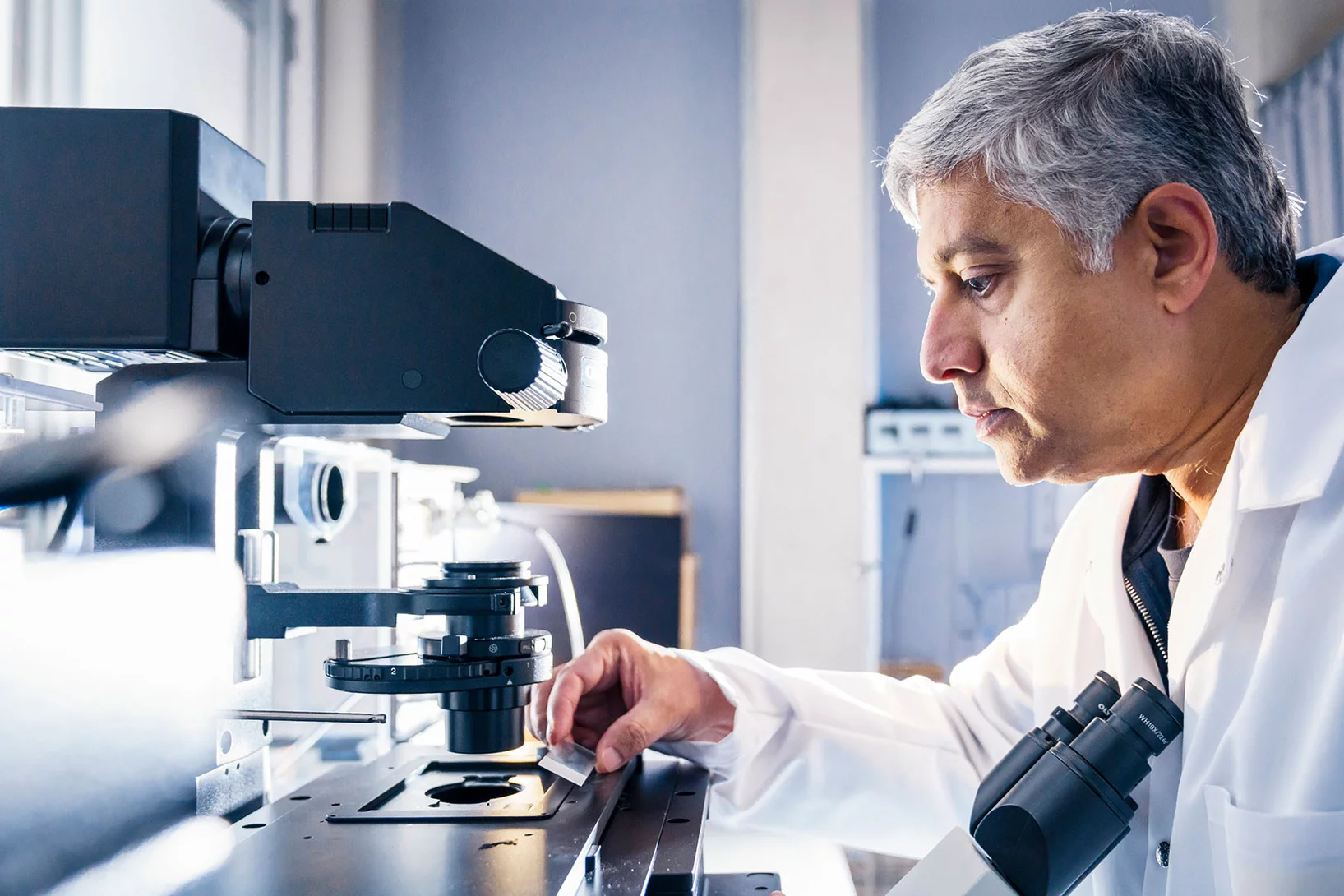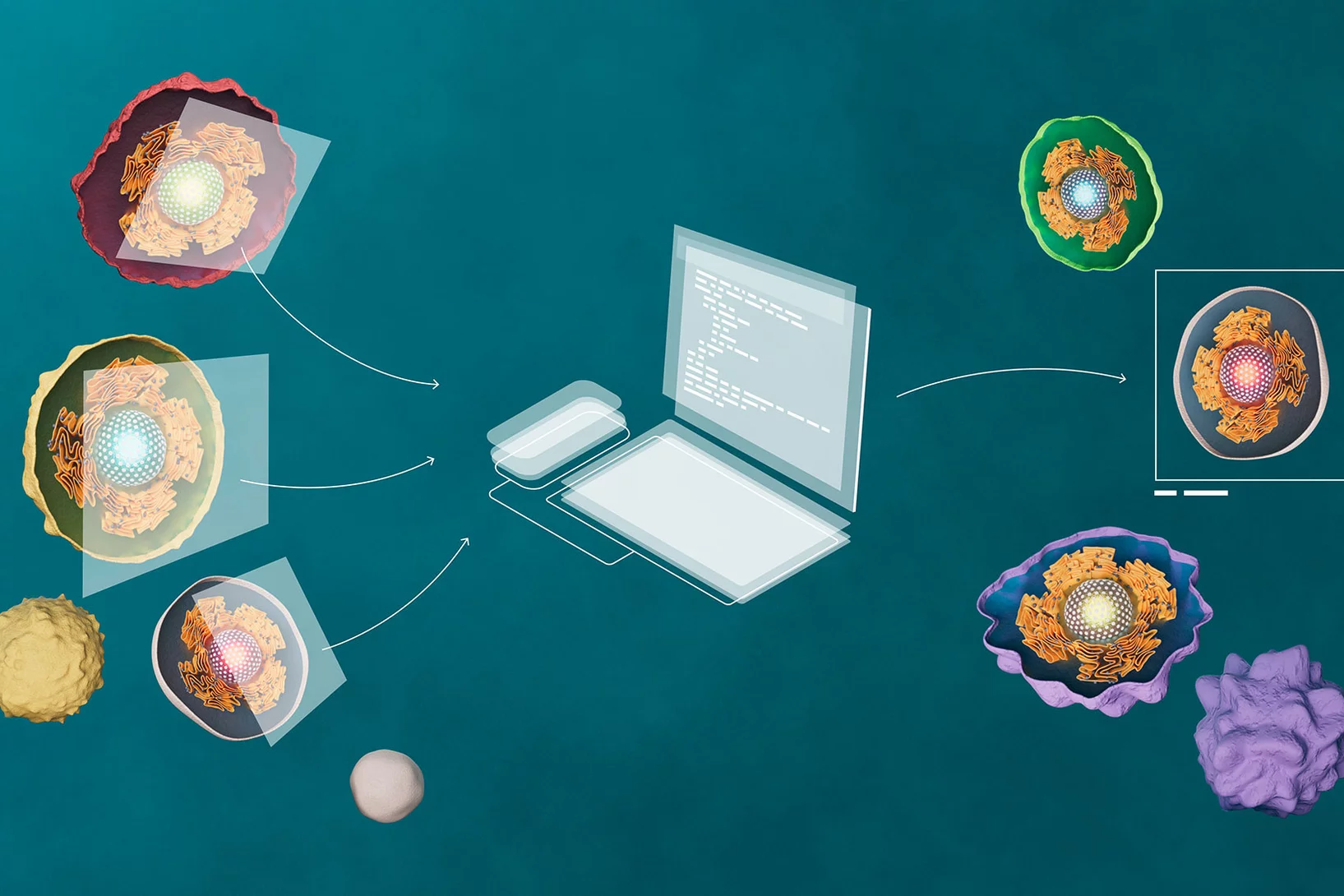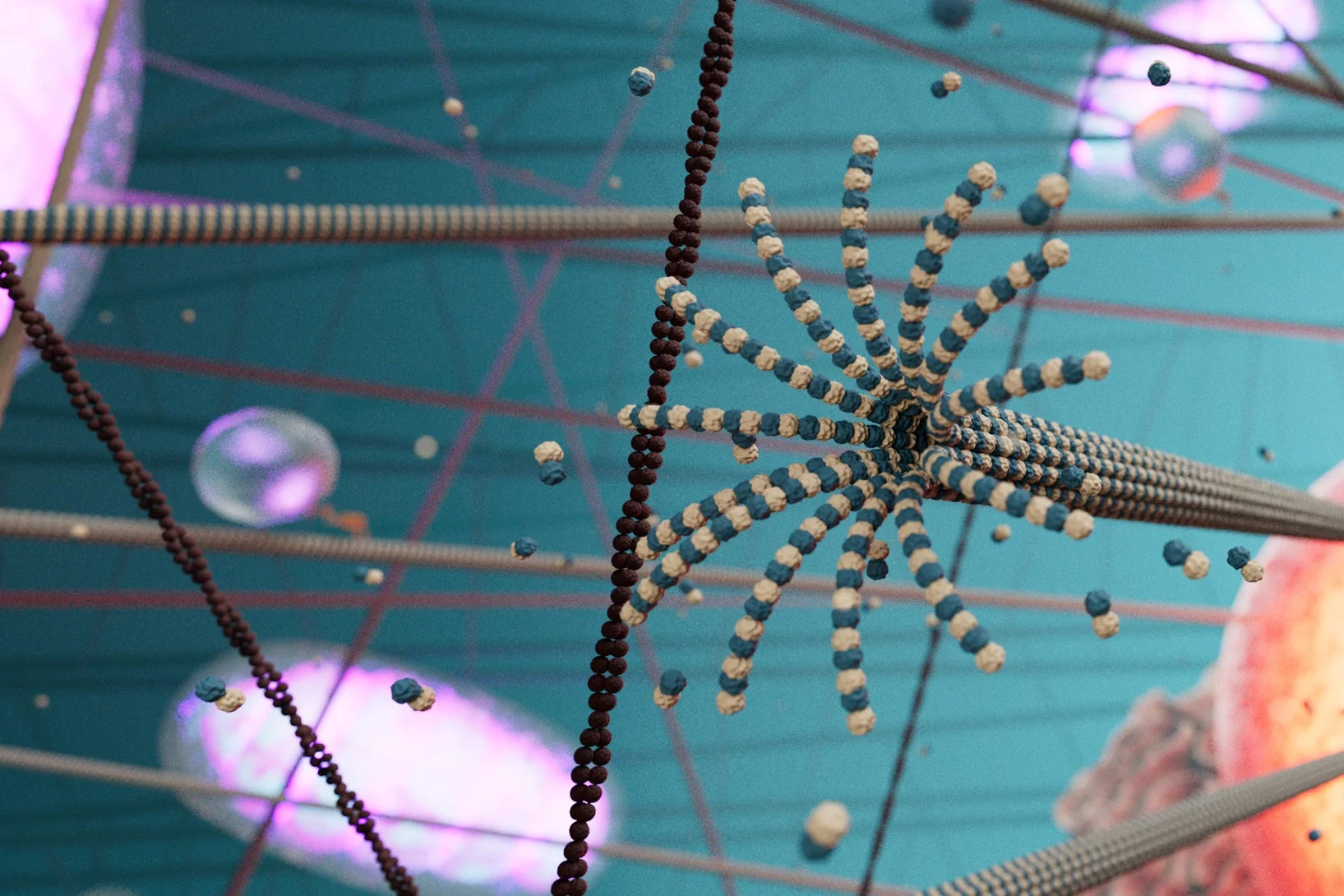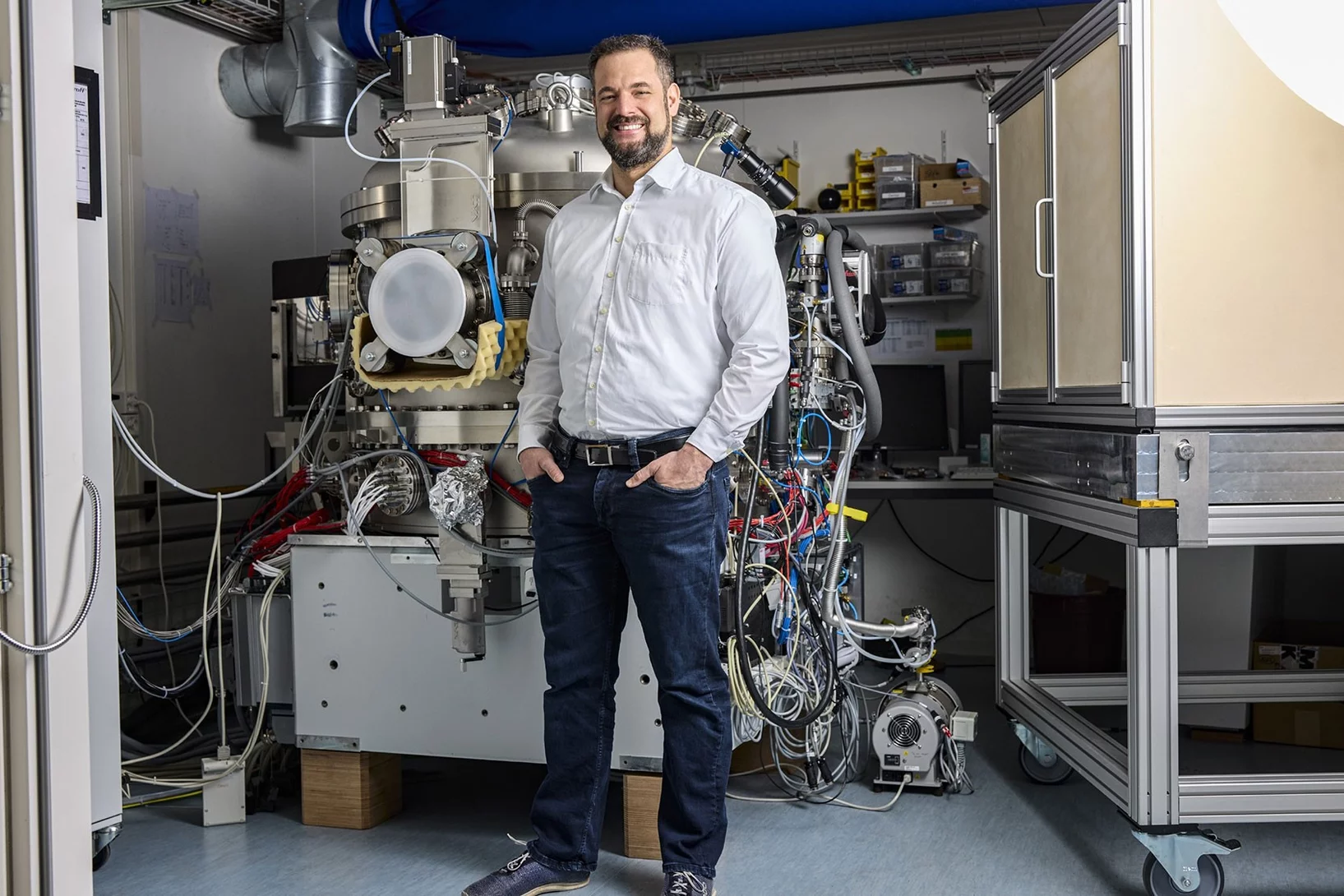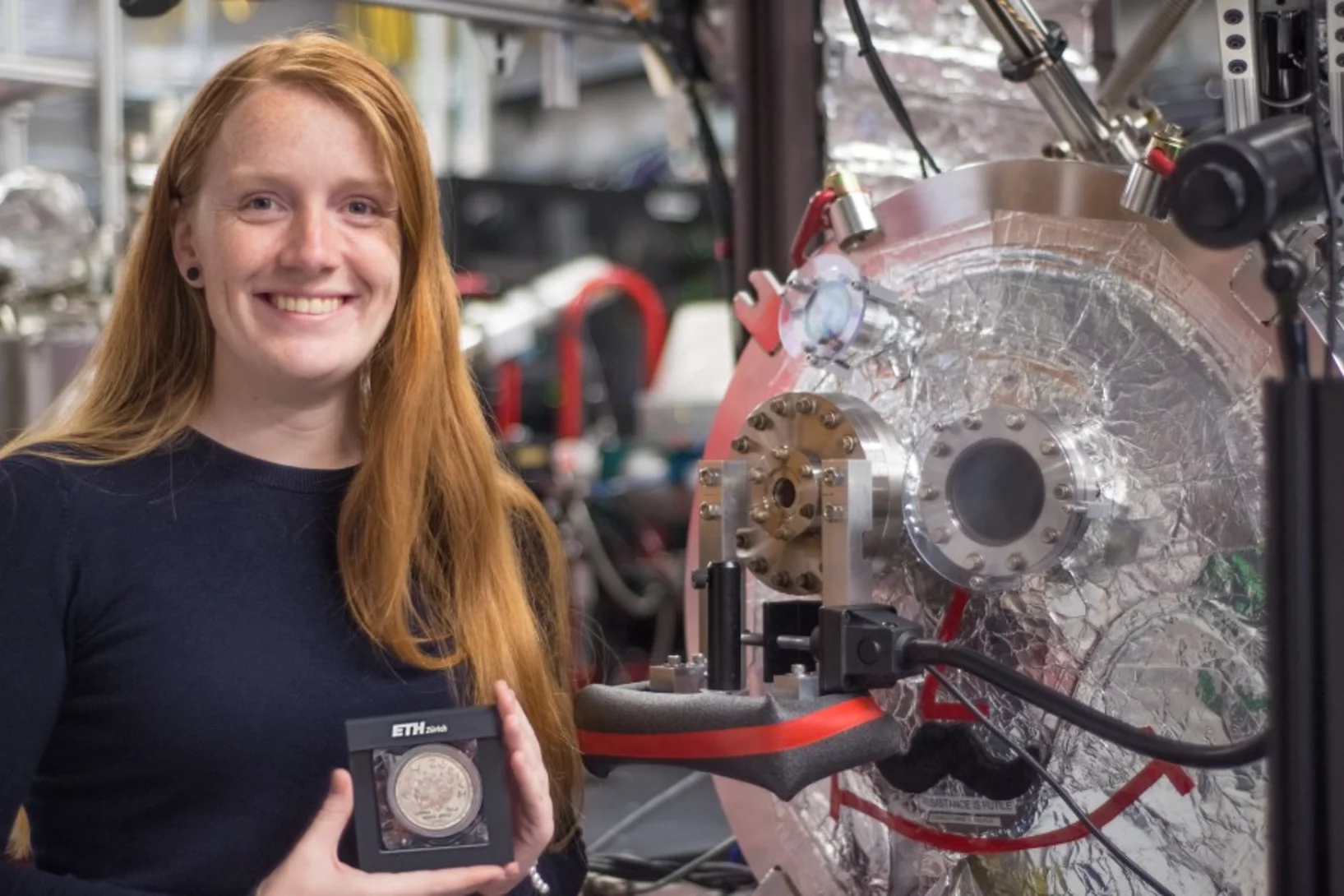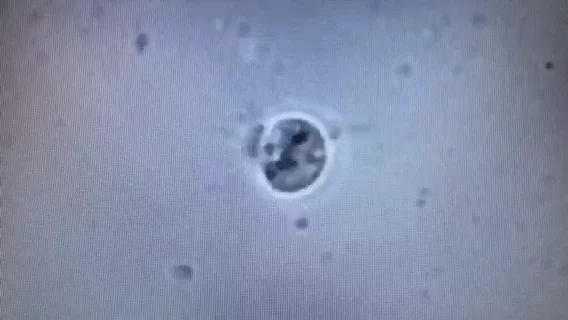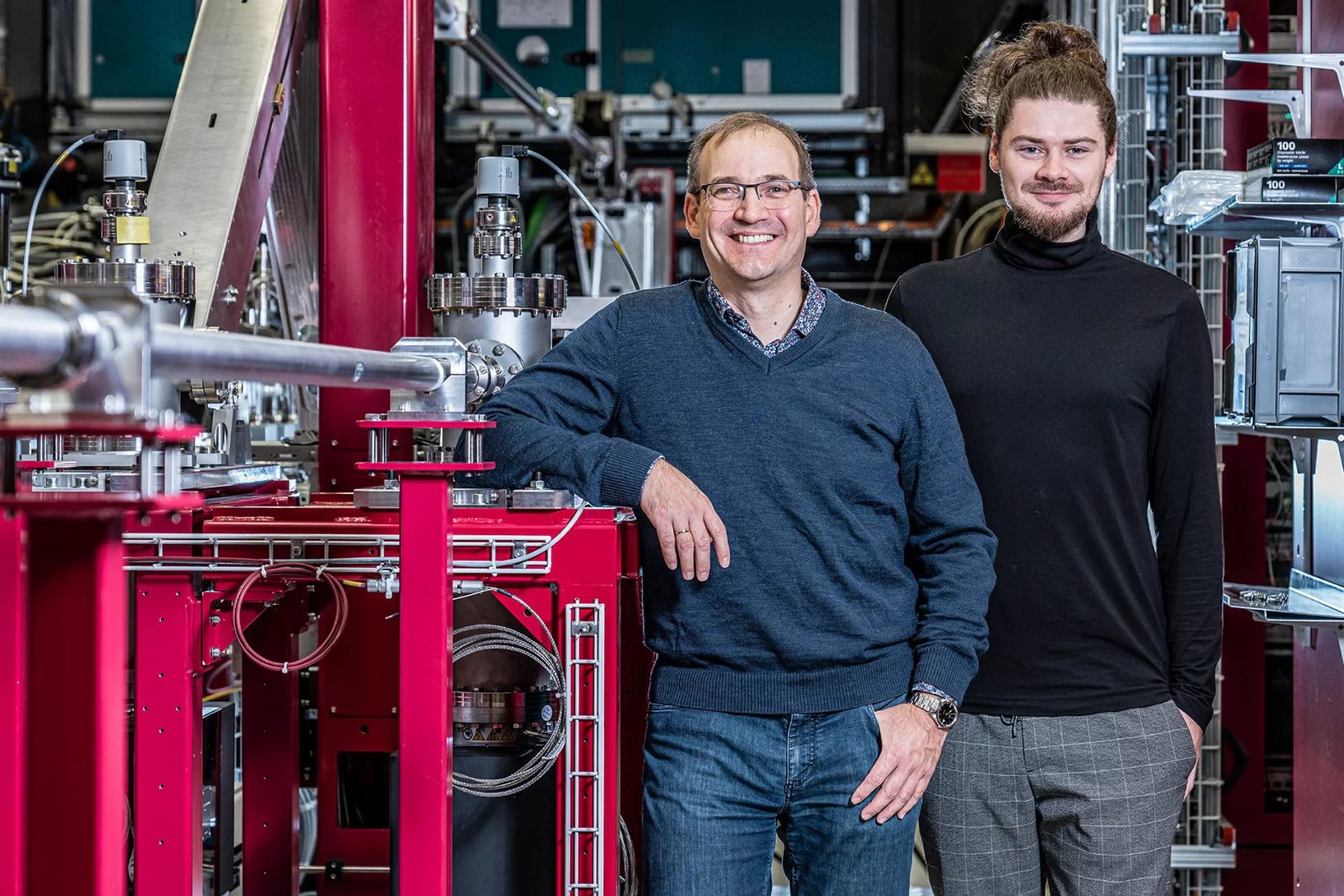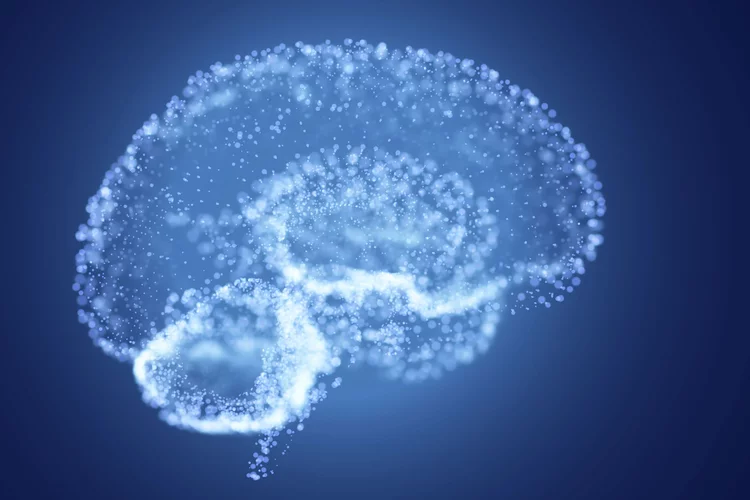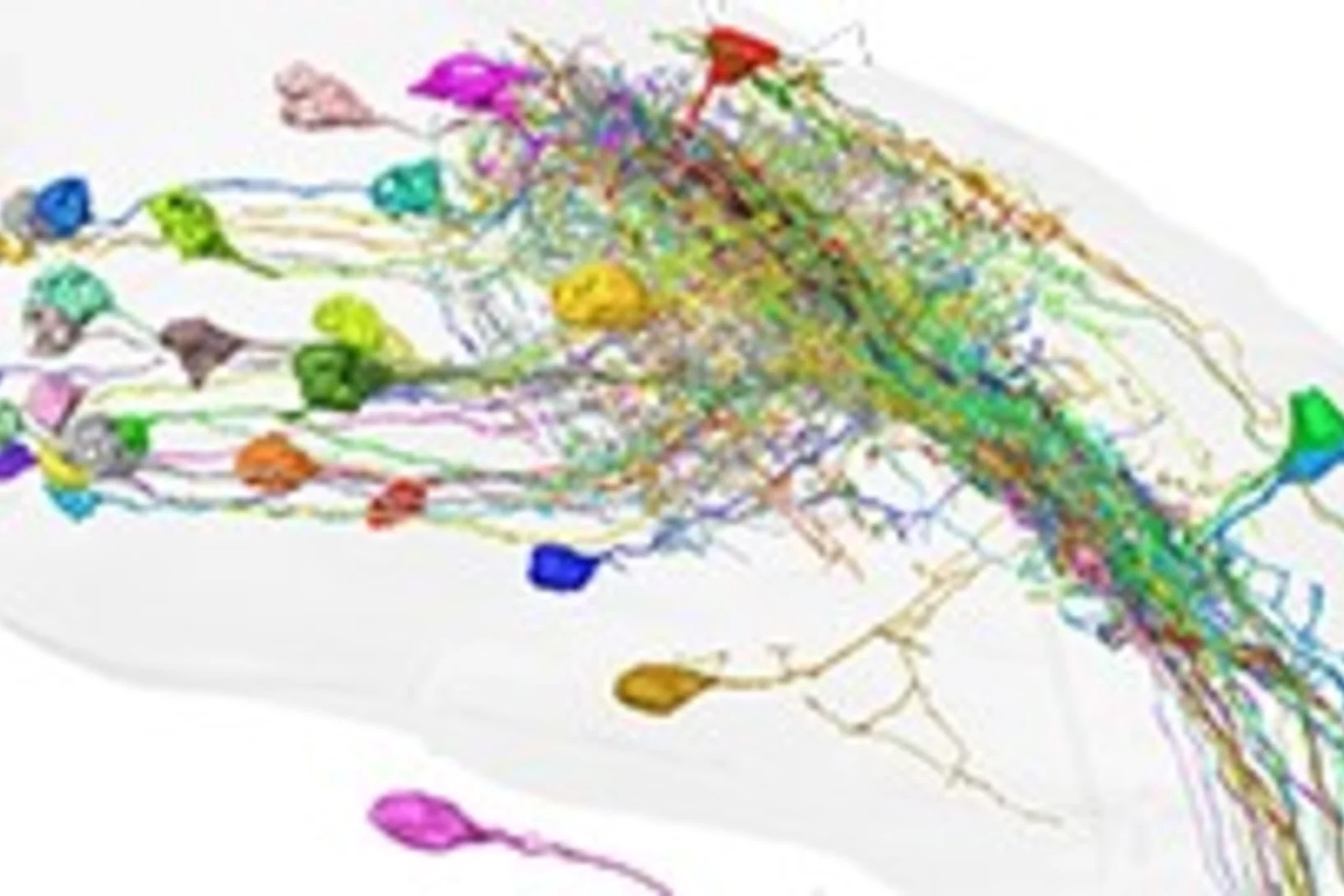Show filters
How microtubules take part in cellular signal processing
Researchers at PSI have investigated on the molecular level how the cytoskeleton transmits commands within the cell. Their findings could provide the medical field with new options for intervention in the event of malfunctions within the organism.
X-rays bring high-resolution brain mapping within reach
A new imaging breakthrough could reveal brain connectivity in 3D detail never before accessible.
How the cheese-pasta principle could help counter Alzheimer's
PSI researchers have discovered cellular mechanisms that could help to mitigate diseases such as Alzheimer's and Parkinson's.
New insights into a rare disease
Researchers at PSI have uncovered how genetic defects damage human cilia in different ways – a step towards improving the diagnosis of primary ciliary dyskinesia, a disease that has until now been poorly understood.
Using terbium against lymphoma
Promising laboratory experiments at PSI show that radionuclide therapy with the radioactive element terbium could combat lymphoma effectively.
From coral berries to new therapies: uncovering the molecular glue mechanism of natural compounds
Researchers at the Center for Life Sciences and the Center for Scientific Computing, Theory, and Data at the Paul Scherrer Institute have identified the mechanism by which certain natural compounds interfere with cellular signaling. These ‘molecular glues’ have a therapeutic potential for the treatment of specific cancer types. Their latest study on this topic has been published in the journal Proceedings of the National Academy of Sciences of the United States of America.
Dr. Yingfang He has been honored with the Alavi-Mandell Award 2025
We congratulate Dr. Yingfang He for the excellent research work she did during her time at the Center for Radiopharmaceutical Sciences.
Using AI to identify genetic perturbations from cell images
New AI identifies genetic perturbations in chromatin – a potential approach in diagnostics and drug development.
A superlative milestone
PSI spin-off Araris Biotech AG achieves valuation at unicorn-level!
How botox enters our cells
Researchers at PSI have identified structural changes of the bacterial neurotoxin botox that are important for its uptake into nerve cells. This finding could allow a more targeted use of botox in medicine.
New approaches to cancer treatment
The ETH/PHRT-funded clinical studies “RAPID 01” and “PROGNOSTICS” have successfully started recruiting patients.
IMPACT for Swiss society
World leader in muons and in production of medical radionuclides: The far-reaching significance of the planned upgrade.
On the way to light-controlled medicine
PSI researchers have elucidated the structure of special photoreceptors.
Breast cancer classification using AI
Researchers at PSI and MIT are developing a new approach, which combines imaging and artificial intelligence to improve the staging of breast cancer.
Protein droplets likely don’t cause Parkinson’s
Study deepens our understanding of neurodegenerative diseases linked to protein aggregation.
A bionanomachine for green chemistry
PSI researchers have characterised a unique enzyme from bacteria that enables an important chemical reaction.
Dr. Chiara Favaretto has been honored with the Alavi-Mandell Award 2024
We congratulate Dr. Chiara Favaretto for the excellent research work she did during her time at the Center for Radiopharmaceutical Sciences.
New possibilities for a healing toxin
PSI researchers discover a surprising mechanism that could broaden the spectrum of therapeutic uses of botulinum toxin.
Enabling early detection of cancer
PSI researchers develop a fundamentally new method for early detection of cancer.
Reprogramming tissue mechanically
Scientists at PSI have used mechanical stimuli to turn connective tissue cells into stem-cell-like cells and transplanted these into damaged skin tissue. This speeds up the regeneration of the skin and the healing of wounds.
Grasping diseases by the roots
PSI researchers take pictures of cell nuclei using modern high-resolution imaging techniques, employ learning algorithms to comb through these data, and thus can more reliably identify anomalies.
More than just a support structure
Each cell in the human body contains a cytoskeleton. Contrary to what the name suggests, the cytoskeleton is far more than just a support structure.
Immerse yourself in the cytoskeleton
The cytoskeleton is a little marvel. Probing it promises to reveal, among other things, new possibilities for cancer therapy.
Deciphering the secrets of the brain
A place for cutting-edge research: PSI researchers to receive comprehensive funding from the US NIH for their brain research.
Sandra Mous received the ETH Medal for her dissertation at ETH Zurich
Sandra Mous received the ETH Medal for her dissertation at ETH Zurich under the supervision of Prof. Gebhard F.X. Schertler, Division Head of Biology and Chemistry at PSI. She captured the first molecular movie of an anion transported across the cell membrane by a protein pump. Congratulations!
Hairy cells: How cilia’s motor works
Understanding this motion may help to tackle health problems that affect cilia, which range from fertility issues to lung disease and COVID-19.
Using light to switch drugs on and off
PSI researchers record a molecular film of a cancer drug fitted with a photoswitch. This opens new insights for drug developers.
The clever glue keeping the cell’s moving parts connected
Optimised by nature over 100 million years of evolution, this smart liquid provides a crucial coupling that ensures cell division correctly proceeds.
Imaging biomarkers for Alzheimer’s disease
Artificial intelligence pinpoints cells indicative of Alzheimer’s disease based on DNA packing in mouse brain images, shows study in Nature Communications
Automated synapse-level reconstruction of neural circuits in the larval zebrafish brain
Researchers from the Max Planck Institute for Biological Intelligence, Google Inc. and the Paul Scherrer Institute published a new method and data resource that makes connectomic analyses of the entire larval zebrafish brain possible.

